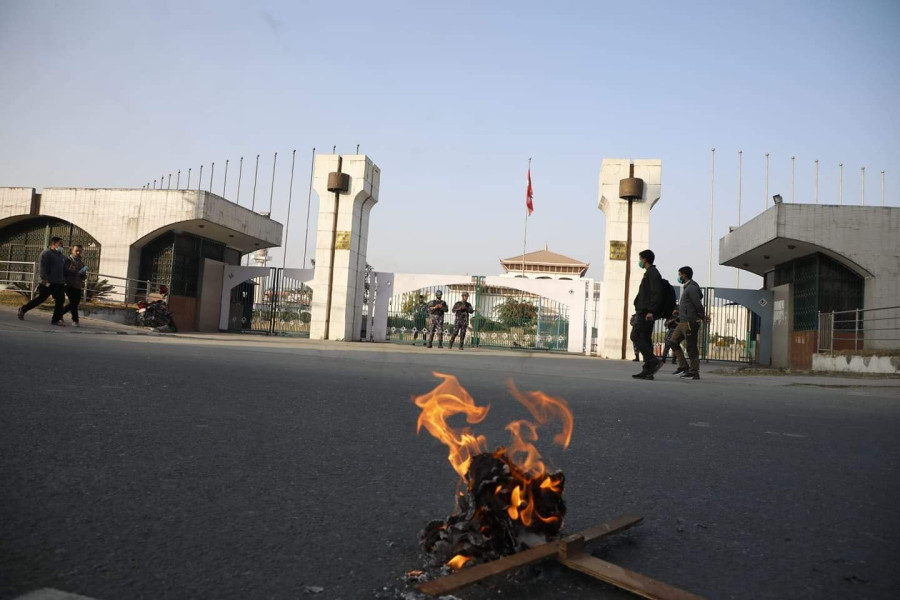Editorial
Prisoners of uncertainty
We can’t afford to return to the old days of horse trading.
By nullifying Prime Minister KP Sharma Oli’s unconstitutional dissolution of the lower house, the Supreme Court on Tuesday rectified one of the many wrongs going on in Nepali politics today. The apex court has done its bit for now, bringing on track the political process that had been thrown off track by Prime Minister KP Sharma Oli and President Bidya Devi Bhandari. But the political crisis is clearly not going to get over anytime soon. While the top court has ordered that the winter session of the House be resumed by March 8, it goes without question that much of that time will be spent on who forms the next government, and who gets kicked out of the hunt for the coveted chair.
The phrase kursi ko khel appeared in newspaper headlines and tea shop debates in the 1990s so often that the generation that grew up during that decade loathed politics as a dirty game. In all likelihood, the abominable term, which was synonymous with parliamentary politics in the days of yore, is set to make a comeback in the next few weeks. We are possibly going back to the days of horse trading and all kinds of sinister plots against democratic politics and political culture. As of today, Oli’s ego has only been wounded but not defeated altogether, and he will make every attempt to hold on to power and put up one last fight, as his advisers and acolytes made it clear after the Tuesday verdict.
All eyes are now on the goings-on in the ruling Nepal Communist Party, which has split politically but is still intact legally. Unless the warring factions of the party decide to patch up their differences, the chain of instability is unlikely to end anytime soon. After all, Nepali Congress is waiting to assume its role as the kingmaker at the slightest opportunity. The sooner this imbroglio ends, the better; the idea is now to begin working towards bringing the political process back on track so that we can take care of more pressing issues that concern the lives of citizens. We cannot remain perennial prisoners of political uncertainty.
For the sake of political stability, the various factions and leaders of the party must sacrifice their egos and calculations. That sounds like expecting too much from the leaders who think of nothing but grabbing power, but the people deserve to be led by leaders who put ethics and values before anything else. Leaders from across the political spectrum must now understand that the people are in no mood to put up with their lust for power at the cost of political culture any longer. It is time for the leaders to clear the political mess they have created if they wish to remain relevant in the changing times.
One of the reasons why the Supreme Court gave an unequivocal verdict against KP Sharma Oli’s unconditional dissolution of the lower house could be because it had gauged the public desire for democratic process. The question is, whether the top court’s adherence to constitutionalism paves the way for the democratisation of institutions and insulates them from the infiltration of Oli-style manoeuvres in the future. The times have changed, and with that the way political debates and discussions are conducted need to change too. As of today, leaders across the board have shown little commitment to foster democratic politics within the party and outside. Continued vigilance from the public and civil society, is, therefore, paramount.




 13.12°C Kathmandu
13.12°C Kathmandu














